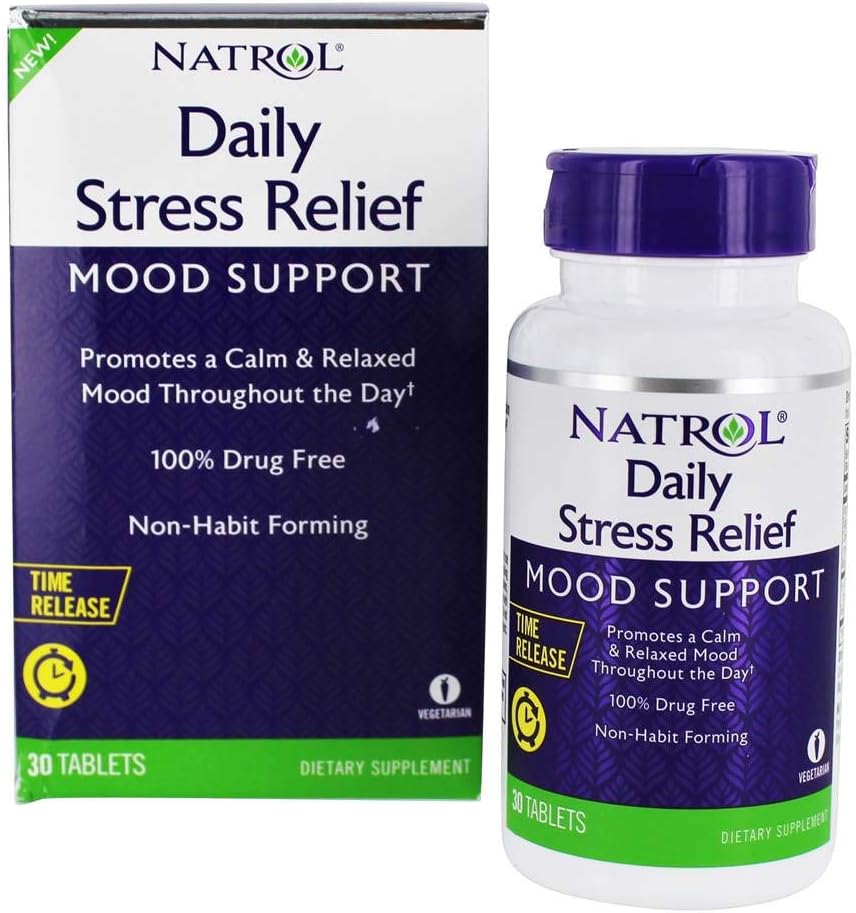



Price: $14.99 - $10.76
(as of Apr 03, 2025 12:44:33 UTC - Details)
What is the Best Vitamin for Stress and Anxiety?
Introduction
In today's fast-paced world, feelings of stress and anxiety have become commonplace. Many people are seeking ways to cope with these overwhelming emotions, leading them to explore various solutions. One area that has gained significant attention is the role of vitamins in managing stress and anxiety. But what is the best vitamin for stress and anxiety?
This article will delve into the vitamins and supplements that may help alleviate these feelings, focusing on the most effective options available. We will cover essential vitamins like Vitamin B-complex, Vitamin D, and Magnesium, providing practical insights into how they work and how to incorporate them into your routine. By the end of this article, you'll have a clearer understanding of which vitamins might be best suited for your needs.
Understanding Stress and Anxiety
Before we dive into specific vitamins, it's important to understand what stress and anxiety are. Stress refers to the body's response to challenges or demands, while anxiety is a feeling of worry, nervousness, or fear about something that may happen. Both can take a toll on your mental and physical health, making it crucial to find effective coping mechanisms.
The Role of Vitamins in Stress and Anxiety Management
Vitamin B-Complex for Stress Relief
When it comes to managing stress, the B-complex vitamins are often highlighted as some of the best options. This group includes vitamins like B1, B2, B3, B5, B6, B7, B9, and B12, all of which play a vital role in maintaining a healthy nervous system.
Why B-Complex?
- Energy Production: These vitamins help convert food into energy, which is essential for managing daily stressors.
- Mood Regulation: Some studies suggest that B vitamins, especially B6 and B12, can help improve mood and reduce symptoms of anxiety and depression.
How to Incorporate B-Complex: You can find B-complex vitamins in various foods such as whole grains, eggs, meat, legumes, and leafy greens. If you're considering a supplement, look for a high-quality B-complex formula.
Vitamin D and Its Impact on Mood
Vitamin D is often referred to as the "sunshine vitamin" because our bodies produce it when exposed to sunlight. However, many people, especially those in less sunny climates, may not get enough of it.
The Connection Between Vitamin D and Anxiety:
- Mood Enhancement: Research has shown that adequate levels of Vitamin D may help improve mood and reduce feelings of anxiety.
- Brain Health: Vitamin D receptors are found in many areas of the brain, indicating its potential role in cognitive function and emotional regulation.
Getting Enough Vitamin D: Spend time outdoors when possible, and consider foods rich in Vitamin D, such as fatty fish, fortified dairy products, and egg yolks. Supplements are also available, particularly for those who have limited sun exposure.
Magnesium: The Relaxation Mineral
Magnesium is another crucial mineral that plays a significant role in managing stress and anxiety. It is involved in over 300 biochemical reactions in the body, including those that regulate mood.
Why Magnesium Matters:
- Stress Response: Magnesium helps regulate cortisol levels, the hormone released during stress. Lowering cortisol can lead to reduced feelings of anxiety.
- Muscle Relaxation: It aids in muscle relaxation, which can help alleviate physical symptoms of stress.
Sources of Magnesium: You can find magnesium in foods like nuts, seeds, whole grains, and leafy green vegetables. If you choose to take a supplement, look for magnesium citrate or magnesium glycinate for better absorption.
Omega-3 Fatty Acids and Mental Well-being
While not a vitamin, Omega-3 fatty acids are essential fats that have been linked to numerous health benefits, including improved mental health.
Benefits of Omega-3s:
- Brain Function: Omega-3 fatty acids are crucial for brain health and can help reduce the symptoms of anxiety and depression.
- Inflammation Reduction: They may also help lower inflammation, which is often associated with anxiety and stress-related disorders.
Incorporating Omega-3s: Fatty fish like salmon, walnuts, flaxseeds, and chia seeds are excellent sources. If you prefer supplements, fish oil capsules are widely available.
Herbal Supplements for Additional Support
In addition to vitamins, some herbal supplements can also help manage stress and anxiety. Popular options include Ashwagandha, Rhodiola Rosea, and Chamomile.
Herbal Remedies:
- Ashwagandha: An adaptogen that may help the body adapt to stress.
- Rhodiola Rosea: Known for its potential to enhance mood and reduce fatigue.
- Chamomile: Often consumed as tea, it may promote relaxation and improve sleep quality.
When exploring herbal supplements, consult with a healthcare provider to ensure they are safe and appropriate for you.
Conclusion
In conclusion, the question of what is the best vitamin for stress and anxiety does not have a one-size-fits-all answer. However, vitamins such as B-complex and D, along with magnesium and Omega-3 fatty acids, can play a supportive role in managing these feelings. Additionally, herbal supplements may offer further assistance.
Incorporating these vitamins and supplements into your daily routine could help improve your overall well-being. Always consider consulting a healthcare professional before starting any new supplement regimen to ensure it aligns with your personal health needs. By taking these steps, you can better equip yourself to handle life's stresses with greater ease.
Daily Stress Relief Dietary Supplements: One 30 count bottle of Natrol Daily Stress Relief for a 30-day supply
Dietary Supplement for Adults: This supplement provides 5-HTP, vitamin B6, vitamin B12, calcium and inositol to help support healthy serotonin levels for a balanced mood(1)
Quality Ingredients: This 100% drug free supplement is made with no milk, egg, fish, crustacean shellfish, tree nuts, peanuts, wheat, soybeans or sesame
Suggested Use: Adults, take one tablet up to two times daily with a meal; do not exceed recommended intake
Disclaimer: (1)These statements have not been evaluated by the Food and Drug Administration; this product is not intended to diagnose, treat, cure or prevent any disease
